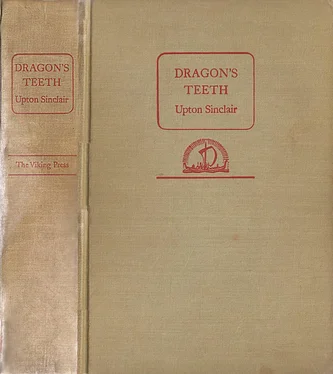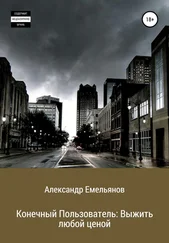Пользователь - o 3b3e7475144cf77c
Здесь есть возможность читать онлайн «Пользователь - o 3b3e7475144cf77c» весь текст электронной книги совершенно бесплатно (целиком полную версию без сокращений). В некоторых случаях можно слушать аудио, скачать через торрент в формате fb2 и присутствует краткое содержание. Жанр: Старинная литература, на русском языке. Описание произведения, (предисловие) а так же отзывы посетителей доступны на портале библиотеки ЛибКат.
- Название:o 3b3e7475144cf77c
- Автор:
- Жанр:
- Год:неизвестен
- ISBN:нет данных
- Рейтинг книги:4 / 5. Голосов: 1
-
Избранное:Добавить в избранное
- Отзывы:
-
Ваша оценка:
- 80
- 1
- 2
- 3
- 4
- 5
o 3b3e7475144cf77c: краткое содержание, описание и аннотация
Предлагаем к чтению аннотацию, описание, краткое содержание или предисловие (зависит от того, что написал сам автор книги «o 3b3e7475144cf77c»). Если вы не нашли необходимую информацию о книге — напишите в комментариях, мы постараемся отыскать её.
o 3b3e7475144cf77c — читать онлайн бесплатно полную книгу (весь текст) целиком
Ниже представлен текст книги, разбитый по страницам. Система сохранения места последней прочитанной страницы, позволяет с удобством читать онлайн бесплатно книгу «o 3b3e7475144cf77c», без необходимости каждый раз заново искать на чём Вы остановились. Поставьте закладку, и сможете в любой момент перейти на страницу, на которой закончили чтение.
Интервал:
Закладка:
The man whom the Nazis were finally to convict of the crime was a feeble-minded Dutchman
who had been expelled from the Communist party of that country and had been a tramp all
over Europe. The police maintained that at his original examination he had told a detailed
story of setting fire to the curtains of the restaurant with matches and fire-lighters. But the
restaurant wasn't the only room that burned; there had been a heavy explosion in the session
chamber, and that vast place had become a mass of flames and explosive gases. The head of
the Berlin fire department had observed trains of gasoline on the floors of the building.
Immediately after the fire he announced that the police had carted away a truck-load of
unburned incendiary materials from the scene of the fire; and immediately after making this
announcement he was dismissed from his post.
Such were the details which the young radicals abroad put together and published in their
papers. But the papers which might have spread such news in Germany had all been
suppressed; their editors were in prison and many were being subjected to cruel tortures. A
sickening thing to know that your comrades, idealists whom you had trusted and followed,
were being pounded with rubber hose, danced upon with spiked boots, having their kidneys
kicked loose and their testicles crushed. Still more terrible to know that civil rights were being
murdered in one of the world's most highly developed nations; that the homeland of Goethe
and Bach was in the hands of men who were capable of planning and perpetrating such
atrocities.
XIII
The fire had the intended effect of throwing all Germany into a panic of fear. Not merely the
Nazis, but Papen and Hugenberg were denouncing the Red conspirators over the radio. All
the new techniques of propaganda were set at work to convince the voters that the Fatherland
stood in deadly peril of a Communist revolution. Friday was proclaimed the "Day of the
Awakening Nation." The Nazis marched with torchlights, and on the mountain-tops and on
high towers in the cities great bonfires burned—fires of liberation, they were called. "O Lord,
make us free!" prayed Hitler over the radio, and loud-speakers spread his words in every
market-square in every town.
On Sunday the people voted, and the Nazi vote increased from nearly twelve million to more
than seventeen million. But the Communists lost only about a million, and the Socialists
practically none. The Catholics actually gained, in spite of all the suppressions; so it appeared
that the German people were not so easy to stampede after all. The Nazis still didn't have a
majority of the Reichstag deputies, so they couldn't form a government without the support
and approval of the aristocrats. What was going to come out of that?
The answer was that Adi Hitler was going to have his way. He was going right on, day after
day, pushing to his goal, and nobody was going to stop him. Objections would be raised in the
Cabinet, and he would do what he had done in party conferences—argue, storm, plead,
denounce, and threaten. He would make it impossible for anyone else to be heard, raise such a
disturbance as could not be withstood, prove that he could outlast any opposition, that his
frenzy was uncontrollable, his will irrepressible. But behind this seeming madness would be a
watchful eye and a shrewd, calculating brain. Adi would know exactly what he was doing and
how far he could go; if the opposition became too strong, he would give way, he would make
promises—and then next day it would be discovered that his followers were going right ahead
doing what he wanted done, and he would be saying that he couldn't control them. If it was
something serious, like the Reichstag fire, he would know nothing about it, he would be
completely taken aback, astounded, horrified; but it would be too late—the building would be
burned, the victim would be dead, the die would be cast.
For more than a decade he had been training his followers to these tactics. They must be a
band of desperadoes, stopping at nothing to get their way. Nothing on earth or in heaven was
sacred except their cause; nothing was wrong that helped their cause and nothing was right
that delayed it for a single hour. Individually and collectively they must be the most energetic
and capable of criminals, also the most shameless and determined liars. They must be able to
say anything, with the most bland and innocent expression, and if they were caught they
must admit nothing, but turn the charge against the other fellow; he was the liar, he was the
crook, he alone was capable of every wrongdoing. Adolf Hitler had never admitted anything to
anybody; he had never told a lie in his life, had never committed any improper action; he was
a consecrated soul, who lived and was ready to die for one single cause, the triumph of
National Socialism and the liberation of the German Volk.
For ten years he had been organizing two private armies of young men, several hundred
thousand fanatics imbued with that spirit: the Sturm Abteilung, or Storm Division, and the
Schutz Staffel, or Defense Formation. They were the men who were going to carry out his will,
and by now they knew it so well that they could act while he was eating, resting, sleeping—even
while he was telling the world that he didn't want them to do what they were doing. Even if he
told them to stop they would go right ahead to crush the last foe of National Socialism inside
the Fatherland, and make the streets free to the brown battalions—the promise of that Horst
Wessel Lied which Hitler had taught them to sing.
XIV
A dreadful series of events to watch; and the fact that you were physically safe from them
wasn't enough for persons with any sensitiveness of soul. Hansi and Bess couldn't eat, they
couldn't sleep, they couldn't think about anything except what was happening to their friends
and associates at home. The Stormtroopers came when they pleased and did what they
pleased; the police had orders to co-operate with them. They came to people's homes at night
and took them away, and nothing more was heard of them. But gradually, through secret
channels, word began to leak out concerning the dreadful happenings in the cellars of the Nazi
headquarters in the Hedemannstrasse, in the Columbus-Haus, and in the old military prison
in the General-Papen-Strasse.
Papa wrote brief notes, carefully guarded; he said: "Don't worry about us, we have friends."
But Hansi and Bess knew a hundred people to worry about, and they read all the papers they
could get and tried to put this item of news together with that and guess about the fate of
their "monolithic party." They wrote anxious letters and then worried because no replies came.
What had become of this leader and of that? Surely some must have escaped, and it didn't take
long to get from Berlin to Paris.
Very difficult to practice music under such circumstances. What did the turn of a phrase
matter, when madmen were loose in one's homeland, when a great civilization was being
strangled. But the young couple had made engagements and had to keep them. They had to let
Lanny and Irma drive them to Juan, dress themselves properly, and go to Emily's villa and
play a program, not too mournful. When an encore was called for, Hansi played one of his
favorites, Achron's Jewish Prayer, and he put two thousand years of weeping and wailing into
it; it was quite wonderful, and the fashionable audience was deeply moved. The tears ran down
Читать дальшеИнтервал:
Закладка:
Похожие книги на «o 3b3e7475144cf77c»
Представляем Вашему вниманию похожие книги на «o 3b3e7475144cf77c» списком для выбора. Мы отобрали схожую по названию и смыслу литературу в надежде предоставить читателям больше вариантов отыскать новые, интересные, ещё непрочитанные произведения.
Обсуждение, отзывы о книге «o 3b3e7475144cf77c» и просто собственные мнения читателей. Оставьте ваши комментарии, напишите, что Вы думаете о произведении, его смысле или главных героях. Укажите что конкретно понравилось, а что нет, и почему Вы так считаете.




